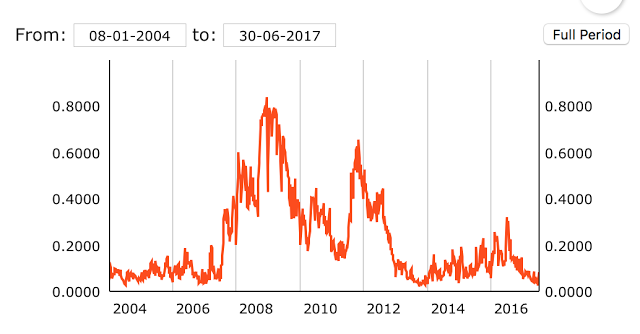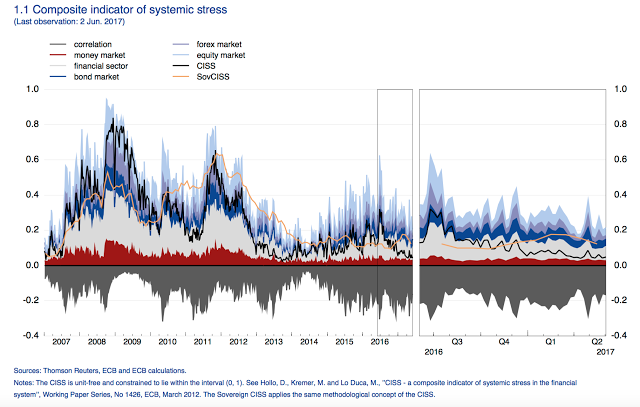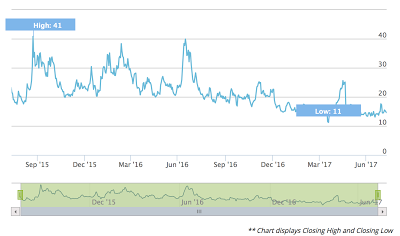Don’t worry, be happy and without stress. The ECB Composite Index of Systematic Stress (CISS) measures declining stress in the EU. While there is a big disclaimer with the ECB risk dashboard that this is not an early warning system, the declining trend tells a story of stability.
This index serves as a European equivalent of the stress indicators used by the Federal Reserve Banks; however, there is a greater emphasis on cross-claims country claims, flows, and banking risks. The CISS numbers tell us that Euro area stress has been less volatile and reached all-time lows after spiking during the BREXIT vote. The US stress indices have also been trending down in 2017. This downtrend is consistent with EU equity volatility measures.
The VSTOXX volatility index below has shown a consistent downtrend, albeit there have been spikes that suggest liquidity may be strained in equity markets at times.
These positive stress numbers should influence the ECB. A tapering of bond purchases would seem natural given the current state of stress, the lowered deflationary fears, the lower unemployment in most countries, and positive growth. A tilt to a policy change seems appropriate. Unfortunately, global macro managers who often thrive on stress and market dislocations have not fully taken advantage of this less stressful environment.



